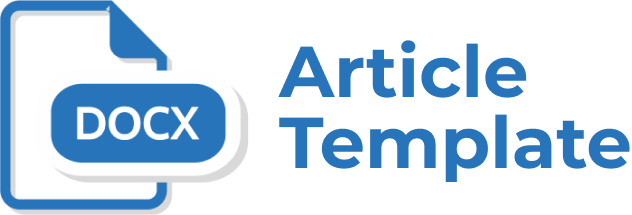Developing Model of Improvement of Supervisor Professionalism Trough Self Evaluation and Colleague Evaluation in Yogyakarta Special Region Province
Abstract
The supervisor is personal that has a very important role. Supervisor on duty to foster and develop
the professionalism of teachers, principals and school itself as a whole. To improve the ability and
professionalism, there is a party to foster teachers, the principals, and supervisors. However, no
party is responsible for enhancing the professionalism of supervisors. The purpose of this study was
to determine: the approval of the supervisor to the model of self-evaluation (SE) as a model to
improve the professionalism, the approval of the supervisor to the model of colleague evaluation
(CE) as a model to improve the professionalism, the high acceptance of the supervisor of the SE
and the CE as a model to improve professionalism supervisors, and barriers and the difficulty of
implementing SE and CE as two models to improve the professionalism of supervisors.
The research model used in this research is the Research and Develpoment (R & D) theorized by
Borg and Gall (2007). According to both of these experts, because the researchers wanted to find a
model, then the research procedure carried out in three stages, namely (1) the preliminary study, (2)
development model, and (3) test the model. This research will be conducted in three years. In the
first year the research just conducted the preliminary study. There are three methods of data
collection used in this study, which scrutiny, observation, and interviews in the Focus Group
Discussion (FGD). The qualitative data obtained by researchers from the observation of the process
of discernment supervision reports, analyzed and drawn its meaning. The qualitative data analysized
to find the meaning of any statements and observations that researchers do the activity process.
The results showed that the supervisor agrees to the model of SE as a model to improve the
professionalism, but it can not be done. Supervisors agreed to the model of CE as a model to
improve the professionalism and can be done either directly on the implementation of the
supervision sat together, and CE documents report on the implementation of supervision. The
supervisor’s acceptance rate on the SE and CE as a model to improve the professionalism is high,
except in the district of Bantul. The barriers are not yet accustomed to evaluating himself. While
the implementation barriers of supervision in school are because of the supervisors to focus on
assisting the school to set up a school accreditation.
Full Text:
PDFReferences
Borg R.W. & Gall, M.D. (2007). Educational Research, an Introduction. English
Edition. Boston: Pearson Education Inc.
Enny Wijayanti. (2014). Penerapandan instrument model ADM dan ATS
Kompetensi Bidang Studi pada Mahasiswa Pendidikan Fisika. Penelitian
Disertasi. Universitas Negeri Yogyakarta.
Glickman, Carl D., Stephen P. Gordon, and Jovita M. Rose Ross-Gordon. (2009).
The Basic Guide to Supervision and Instructional Leadership. 2nd ed.
Boston. Pearson Education.
Keputusan Bersama Mendikbud Nomor 03420/O/1996 dan Kepala Badan
Administrasi Kepegawaian Negara Nomor 38 Tahun 1996 tentang Petunjuk
Pelaksanaan Jabatan Fungsional Pengawas.
Keputusan Mendikbud Nomor 020/U/1998 tentang Petunjuk Teknis Pelaksanaan
Jabatan Fungsional Pengawas Sekolah dan Angka Kreditnya.
Kulkarni, Chinmay.et.all. ( 2013). Peer and Peer Assesment in Masive On- line
Classes. ACM Transaction on Computer Human Interaction Vol. 20 No 6
Article 33. December 2013.
Nana Sujana. (2006). Standar Mutu Pengawas. Rosda Karya. Bandung.
Permendiknas Nomor 13 Tahun 2007.
Suharsimi Arikunto. (2006). Penelitian dengan Model Penilaian Diri dan
Penilaian antar Mahasiswa pada Matakuliah Pengawasan. Fakultas Ilmu
Pendidikan. Universitas Negeri Yogyakarta.
Surat Keputusan Menpan Nomor 118 Tahun 1996 tentang Jabatan Fungsional
Pengawas dan Angka Kreditnya.
Refbacks
- There are currently no refbacks.


